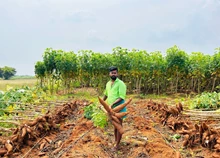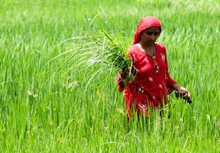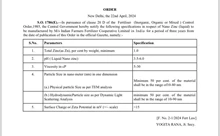
In a bid to address the challenges posed by extreme weather events and the ongoing unusually cold winters, the Indian Council of Agricultural Research and Central Research Institute for Dryland Agriculture (ICAR-CRIDA) inaugurated a 21-day Winter School titled "Application of Weather Information for Climate Resilient Farming." The event commenced today in Hyderabad and brought together 25 scientists and faculty members from various disciplines representing 11 states across India.
Fighting Climate Challenges
Dr. Rajbir Singh, Assistant Director General, AAFCC, graced the occasion as the Chief Guest, emphasising the increasing frequency of extreme weather events. He highlighted the pivotal role played by ICAR-CRIDA, along with AICRPAM and NICRA, in promoting climate-resilient agriculture not only in India but also on the global stage.
Addressing the prevailing unusually cold winters, Dr. Vinod Kumar Singh, Director of ICAR-CRIDA, and Guest of Honour, stressed the significance of CRIDA in conducting research for climate-resilient agriculture. The ongoing cold spell, affecting Hyderabad and various parts of India, has prompted experts to investigate the combination of natural and man-made factors contributing to the drop in temperatures.
CRIDA's Mission for Climate-Resilient Agriculture
The mission of CRIDA is multifaceted, involving both basic and applied research. This includes enhancing productivity in dryland and rainfed areas, developing conservation techniques for environmental resources, understanding crop growth processes under moisture stress, and conducting research on climate change impacts. The Winter School aims to equip scientists with the knowledge and tools necessary to address these challenges and contribute to climate-resilient farming practices.
Participation in the Winter School is diverse, with 25 scientists and faculties from ICAR Institutes, SAUs, and KVKs representing 11 states. This collaborative effort underscores the urgency and importance of adopting climate-resilient farming practices across the country.
Flagship Initiative for Ganga's Preservation
In a related development, Dr. Himanshu Pathak, Secretary (DARE) & Director General (ICAR), recently inaugurated the third phase of the 'Namami Gange' River Ranching Programme at Seoraphuli Ghat. This 'Flagship Programme,' approved by the Union Government in June 2014 with a budget outlay of Rs 20,000 crore, seeks to address pollution issues and preserve the ecosystem of the Ganga.
The Winter School and the 'Namami Gange' initiative reflect the commitment of agricultural and environmental stakeholders to tackling climate challenges and ensuring sustainable practices for a resilient future.











